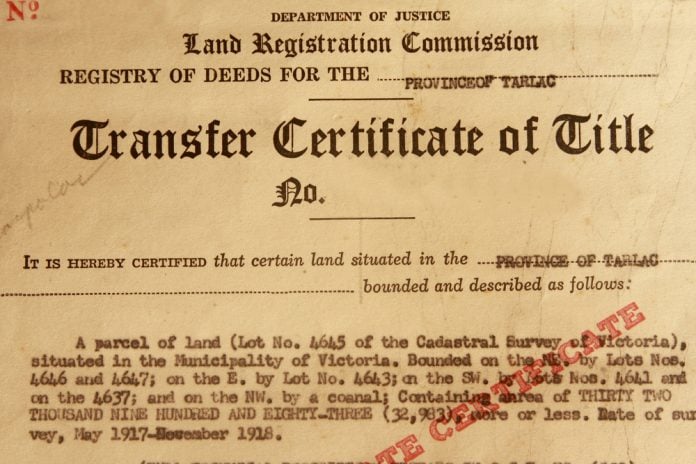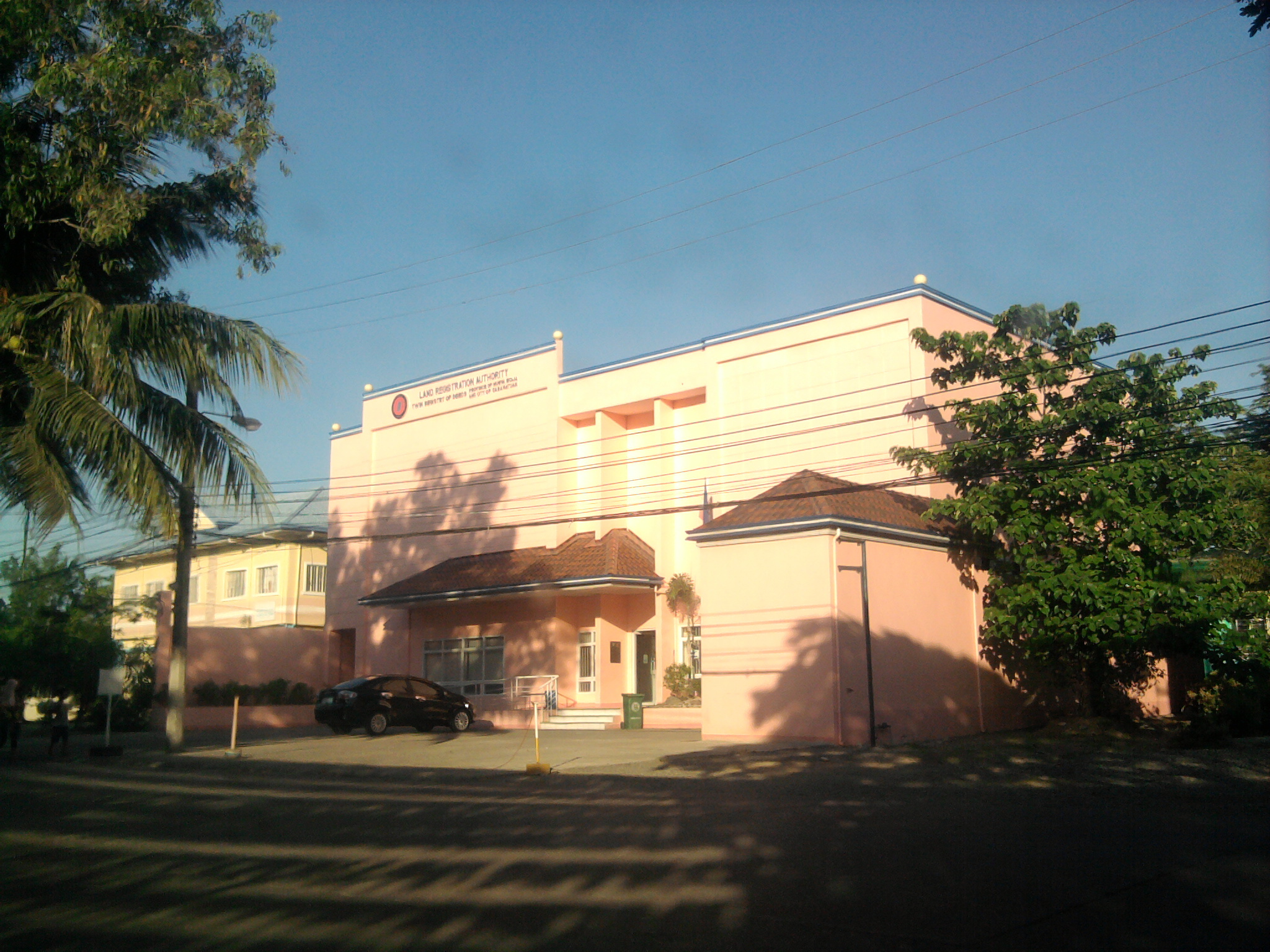What is the Certificate of Land Ownership in the Philippines:The Certificate of Land Ownership in the Philippines is an official document, often in the form of a Torrens Title, that serves as legal proof of land ownership

Types of Land Ownership Certificates in the Philippines
Torrens Title
The Torrens Title stands as the gold standard for land ownership in the Philippines. Originating from the Torrens system of Australia, this certificate gives you indisputable proof of ownership. Once the government issues this title, your rights to the land become virtually unchallengeable.
- Description: The Torrens Title offers the highest form of security and authenticity in land ownership. When you hold a Torrens Title, it means the government fully backs your claim to the property.
- Advantages: Holding a Torrens Title comes with a number of benefits:
- Legal Recognition: Your ownership of the property becomes unquestionable.
- Financial Leverage: You can use the title as collateral for bank loans.
- Disadvantages:
- Costly Process: You’ll need to pay various fees and charges, including but not limited to, registration fees and documentary stamp taxes.
- Time-Consuming: It can take months, or even years, to finally get this title in your hands.
- How to Acquire: To obtain a Torrens Title, you must:
- File an application with the Land Registration Authority.
- Undergo a comprehensive land survey.
- Successfully pass through a titling process that includes judicial proceedings.

Tax Declaration
The Tax Declaration is often misunderstood as a form of land title, but it’s more of an auxiliary document.
- Description: While not an actual title, a Tax Declaration serves as evidence that you are paying the necessary taxes for the property.
- Advantages:
- Easier to Obtain: Acquiring a Tax Declaration is less bureaucratic.
- Lower Costs: You won’t have to empty your wallet to get one.
- Disadvantages:
- Not Full Proof of Ownership: Holding a Tax Declaration doesn’t give you full legal ownership over the land.
- Limited Financial Benefits: Most financial institutions will not accept a Tax Declaration as collateral.
- How to Acquire:
- Visit your local municipal or city assessor’s office.
- Present previous land tax receipts as proof that taxes for the land have been consistently paid.
Free Patent
A Free Patent is a special form of land title given to qualified Filipino citizens for public agricultural lands.
- Description: A Free Patent is essentially a fast-track land title specifically designed for public agricultural lands.
- Advantages:
- Quick Process: Compared to the Torrens Title, a Free Patent can be processed more quickly.
- Zero Cost: No fees are required to obtain this title.
- Disadvantages:
- Restricted Use: The title only applies to agricultural lands.
- Citizens Only: You have to be a Filipino citizen to qualify for a Free Patent.
- How to Acquire:
- File an application with the Department of Environment and Natural Resources.
- Meet specific criteria related to citizenship and land usage.
Native Title
Native Title applies to indigenous peoples and their ancestral lands.
- Description: This title is designed to recognize the land rights of the country’s indigenous peoples.
- Advantages:
- Ancestral Recognition: Native Title recognizes centuries-old ancestral land claims.
- Community Cohesion: The title can strengthen the unity and identity of indigenous communities.
- Disadvantages:
- Limited Convertibility: It’s difficult to convert a Native Title into a commercial title.
- Community Consent Required: Any land transactions require the consent of the indigenous community.
- How to Acquire:
- Consult with the National Commission on Indigenous Peoples.
- Provide evidence of ancestry and traditional land ownership.
Importance of Land Ownership Certificate in the Philippines
Legal Proof of Ownership
A Land Ownership Certificate, especially the Torrens Title, stands as irrefutable legal proof of land ownership. When disputes arise, this document becomes the cornerstone in settling issues.
- Indisputable Evidence: A certificate like the Torrens Title is often the first document courts ask for in land disputes. It serves as an ironclad verification of your rights to the property.
- Prevents Land Grabbing: Land grabbing is a major issue in the Philippines. Having a certified land ownership document deters unauthorized claims to your property.
- Facilitates Police Action: In cases of trespassing or encroachment, the police are more likely to take swift action if you can present a legitimate land ownership certificate.
Financial Transactions
Land Ownership Certificates play an indispensable role in various types of financial transactions, notably in securing loans from banks and other financial institutions.
- Eligibility for Loans: Banks and other lending institutions often require a Torrens Title as collateral for substantial loans. For more information on how this works, check out this Wikipedia article on collateral.
- Valuation of Property: Financial experts frequently use land titles to assess the value of property, which in turn influences the loan amount you can request.
- Investment Opportunities: Investors often look for properties with clear titles to ensure a smooth and secure transaction.
Inheritance and Transfer
In the event of a property owner’s demise, a Land Ownership Certificate is vital for the seamless transfer of property ownership to heirs.
- Streamlines Inheritance Process: A clear land title simplifies the inheritance process, ensuring that the rightful heirs can claim the property without unnecessary delays.
- Tax Implications: Proper titles enable a smoother process for calculating estate taxes and other fees tied to the transfer of property.
- Gifting Property: If you wish to gift your property to someone, a clear land title expedites the process, offering legal security to both the giver and the recipient.

The Process of Acquiring a Land Ownership Certificate in the Philippines
Initial Steps
Embarking on the journey to acquire a Land Ownership Certificate starts with some fundamental procedures. These initial steps pave the way for a smooth titling process.
- Research the Land: Prior to making any commitments, ensure that you know everything about the land. Conduct a thorough background check to identify any potential issues like disputes or inconsistencies in land area.
- Land Survey: Commission a land survey through an authorized geodetic engineer to accurately measure the land and mark its boundaries.
- Consult the Local Registry: Before proceeding, consult with the local registry office to confirm whether the land already has an existing title. This can save you from future complications.
Required Documentation
The paperwork involved in obtaining a Land Ownership Certificate is extensive and varies depending on the type of title you are applying for.
- Proof of Sale: If you bought the property, the Deed of Sale is a required document.
- Tax Receipts: You need to show tax receipts to confirm that all land taxes are up-to-date.
- Clearances and Permits: Various clearances from local government units and, in some cases, from the Department of Environment and Natural Resources may be necessary.
Costs and Fees
Obtaining a Land Ownership Certificate is not without its costs. These fees can range from nominal to quite substantial, depending on the type of land and the kind of title you are applying for.
- Registration Fees: You need to pay a registration fee to the Land Registration Authority or other pertinent government agencies.
- Survey Costs: The land survey usually comes with its own set of charges, which can vary based on the size and location of the property.
- Legal Fees: If you hire a lawyer to assist with the application, expect additional costs for legal services.

Government Agencies Involved in Land Ownership Certification in the Philippines
Land Registration Authority (LRA)
The Land Registration Authority (LRA) holds a crucial role in the issuance and maintenance of Torrens Titles. This agency works as the central repository for all land records and titles in the Philippines.
- Core Functions: The LRA primarily processes land titles and registers them in the official registry. It also maintains the integrity of the Torrens system.
- Interactions with Public: If you’re applying for a Torrens Title, your primary interactions will be with the LRA. This is where you will submit your application and most of your required documents.
- Public Access to Records: The LRA also allows the public to access land title records, which can be crucial for background checks on properties.
Department of Environment and Natural Resources (DENR)
- Issuance of Free Patents: DENR is the go-to agency if you’re applying for a Free Patent. They assess your eligibility and process the application.
- Environmental Clearances: For certain types of land, you’ll need environmental clearances from DENR. This is especially true for lands in environmentally sensitive areas.
- Land Classification: DENR holds the responsibility for the classification of public lands.
Bureau of Lands
Though not as prominent as the LRA or DENR, the Bureau of Lands is another agency involved in land titling and ownership issues.
- Supporting Role: The Bureau of Lands often works in conjunction with other agencies like the LRA and DENR in matters of land classification and titling.
- Technical Services: This agency offers technical services, including cadastral surveys and mapping, which may be required in your application for a land ownership certificate.
- Public Lands: The Bureau of Lands has historically managed public lands, although many of its functions have been absorbed by the DENR.